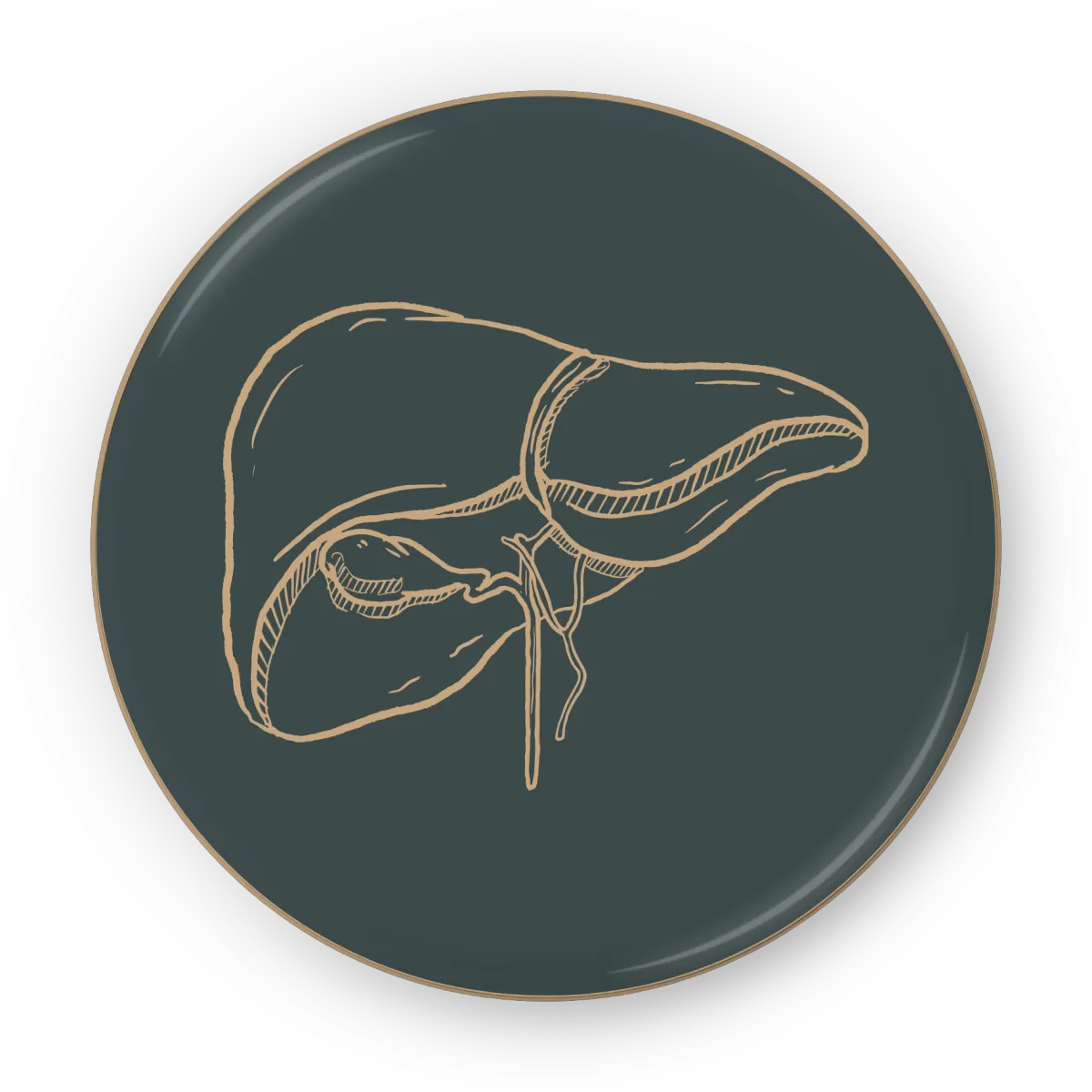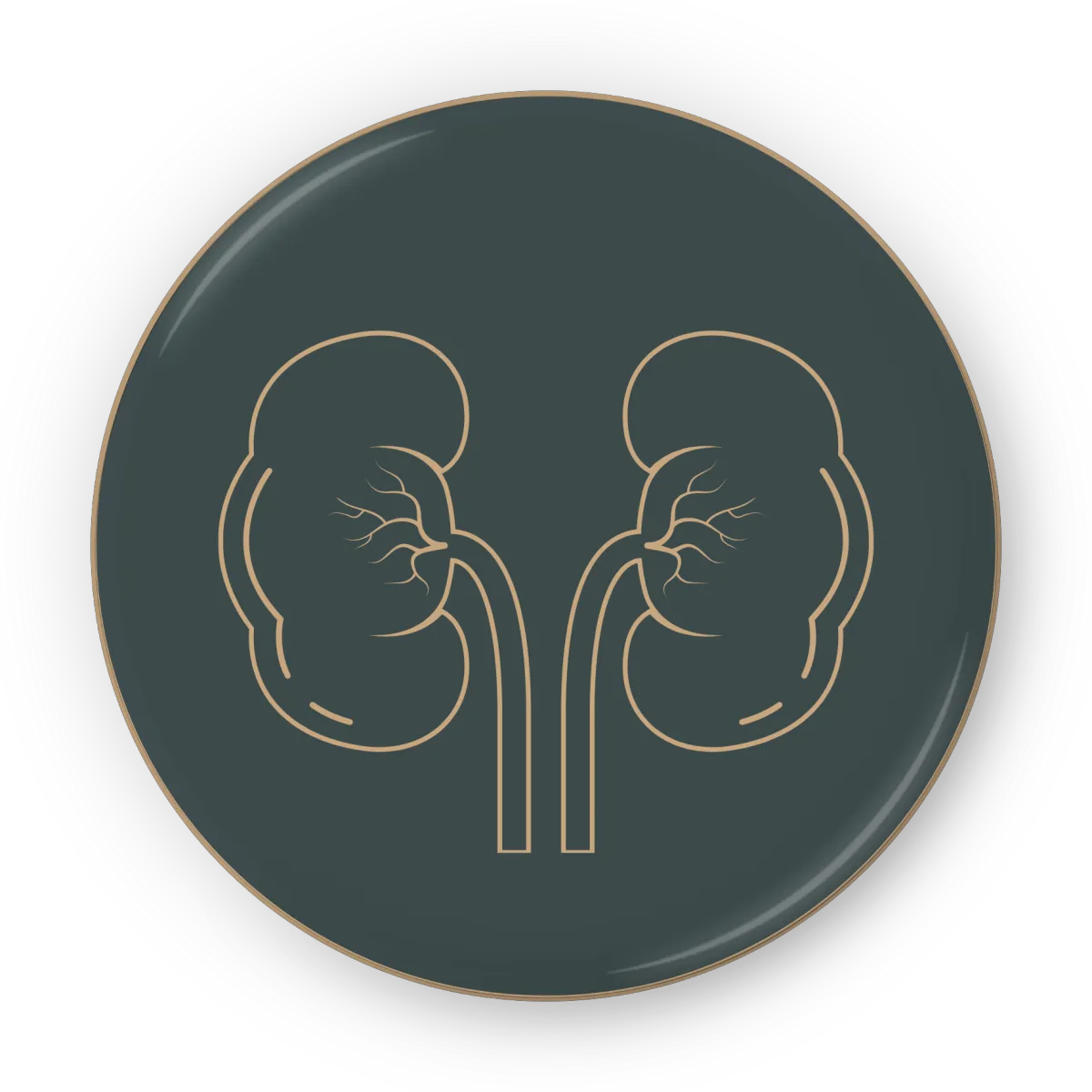Therapeutic Applications of MSC Exosomes

NEURO | PROTECTION
Reducing Inflammation:
Umbilical cord MSC Exosomes have anti-inflammatory properties, which can help reduce NeuroInflammation, a common feature in many neurodegenerative diseases and acute injuries like stroke and traumatic brain injury (TBI).
Oxidative Stress Mitigation:
They contain antioxidants and other protective molecules that help mitigate oxidative stress, which is harmful to neural cells.
NEURO | REGENERATION
Promoting Neurite Outgrowth:
Studies have shown that these exosomes can promote neurite outgrowth, which is essential for the repair and regeneration of neural networks.
Neurogenesis:
They can enhance the proliferation and differentiation of neural progenitor cells, aiding in the regeneration of nervous tissue.
REPAIRING NEURAL DAMAGE
Stroke:
In models of ischemic stroke, umbilical cord MSC exosomes have been shown to reduce infarct size, promote angiogenesis (formation of new blood vessels), and improve functional recovery.
Traumatic Brain Injury (TBI):
They can reduce inflammation, limit secondary damage, and enhance recovery in TBI models.
Spinal Cord Injury:
Exosomes have shown promise in improving motor function and promoting tissue repair in spinal cord injury models by reducing apoptosis (cell death) and inflammation.
NEURO | DEGENERATIVE DISEASES
Alzheimer’s Disease:
Umbilical cord MSC exosomes can reduce amyloid-beta plaques and tau protein aggregation, which are hallmarks of Alzheimer’s disease. They also promote neuronal survival and synaptic function.
Parkinson’s Disease:
These exosomes may protect dopaminergic neurons, reduce neuroinflammation, and improve motor functions in Parkinson’s disease models.
MODULATING IMMUNE RESPONSE
Immune Regulation:
Exosomes from umbilical cord MSCs can modulate the immune response, creating a more favorable environment for neural repair and reducing autoimmunity, which is beneficial in conditions like multiple sclerosis.
DELIVERING THERAPEUTIC MOLECULES
Gene and Drug Delivery:
Exosomes can be engineered to deliver specific therapeutic molecules, such as neuroprotective drugs, siRNAs, or microRNAs, directly to the affected areas in the nervous system, enhancing their therapeutic efficacy.
ANTI-APOPTOTIC EFFECTS
Preventing Cell Death:
Exosomes can inhibit apoptotic pathways, thereby protecting neurons and other neural cells from programmed cell death induced by injury or disease.

ANGIOGENESIS AND VASCULAR REPAIR
Promoting Angiogenesis:
Umbilical cord MSC exosomes contain pro-angiogenic factors that can stimulate the formation of new blood vessels, which is crucial for tissue repair and improving blood flow in ischemic conditions.
Vascular Endothelial Repair:
They can enhance the proliferation and migration of endothelial cells, promoting the repair of damaged blood vessels.
ANTI-INFLAMMATORY AND ANTI-FIBROTIC EFFECTS
Reducing Inflammation:
Exosomes have anti-inflammatory properties that can help reduce inflammation in vascular tissues, such as in atherosclerosis and vasculitis.
Inhibiting Fibrosis:
They can reduce fibrotic tissue formation, which is beneficial in conditions like myocardial infarction (heart attack) and cardiac fibrosis.
CARDIO | PROTECTION AND MYOCARDIAL REPAIR
Reducing Myocardial Infarct Size:
In models of myocardial infarction, umbilical cord MSC exosomes have been shown to reduce the size of the infarcted area and improve cardiac function.
Promoting Cardiomyocyte Survival:
Exosomes can protect cardiomyocytes (heart muscle cells) from cell death and promote their survival and function.
MODULATING CARDIAC REMODELLING
Preventing Cardiac Remodelling:
They can inhibit adverse cardiac remodelling, such as hypertrophy and fibrosis, which are common consequences of heart diseases.
Improving Heart Function:
Exosomes can enhance heart function by promoting contractility and electrical conduction in damaged heart tissues.
REGULATING CARDIAC STEM CELLS
Activation of Endogenous Cardiac Stem Cells:
Exosomes can stimulate the proliferation and differentiation of cardiac stem cells, which may contribute to myocardial regeneration and repair.
IMPROVING ENDOTHELIAL FUNCTION
Enhancing Endothelial Nitric Oxide Production:
Exosomes can stimulate the production of nitric oxide (NO) by endothelial cells, promoting vasodilation and improving vascular function.
REDUCING ISCHEMIA-REPERFUSION INJURY
Protecting Against Ischemia-Reperfusion Injury:
Exosomes can mitigate the damage caused by reperfusion following a period of ischemia, preserving tissue integrity and function.
DELIVERING THERAPEUTIC MOLECULES
Gene and Drug Delivery:
Exosomes can be engineered to deliver specific therapeutic molecules, such as growth factors, miRNAs, or drugs, directly to the heart and vascular tissues, enhancing their therapeutic effects.

IMMUNO | MODULATION
Anti-inflammatory Effects:
MSC exosomes have potent anti-inflammatory properties by modulating the activity of immune cells such as macrophages, dendritic cells, and T cells. This can help in reducing excessive inflammation in autoimmune diseases.
Induction of Regulatory T Cells (Tregs):
They can promote the generation and expansion of Tregs, which play a critical role in maintaining immune tolerance and preventing autoimmunity.
Suppression of Effector T Cells:
Exosomes can inhibit the proliferation and activation of effector T cells, which are involved in immune responses against self-antigens in autoimmune diseases.
TREATMENT OF AUTOIMMUNE DISEASES
Rheumatoid Arthritis (RA):
MSC exosomes have been shown to alleviate symptoms of RA by reducing joint inflammation and destruction.
Multiple Sclerosis (MS):
They can modulate the immune response and promote neuroprotection, potentially slowing the progression of MS.
Systemic Lupus Erythematous (SLE):
Exosomes can suppress autoantibody production and reduce kidney inflammation in SLE.
Inflammatory Bowel Disease (IBD):
They have shown anti-inflammatory effects in models of IBD, improving gut barrier function and reducing inflammation.
PROMOTION OF TISSUE REPAIR AND REGENERATION
Wound Healing:
MSC exosomes can promote wound healing by enhancing the migration, proliferation, and angiogenic activity of endothelial cells, as well as modulating the inflammatory response.
Organ Fibrosis:
They can inhibit the activation of fibroblasts and reduce collagen deposition, which is beneficial in preventing tissue fibrosis.
MODULATION OF INNATE RESPONSES
Macrophage Polarization:
Exosomes can induce a shift in macrophage phenotype from pro-inflammatory (M1) to anti-inflammatory (M2), promoting tissue repair and reducing inflammation.
Dendritic Cell Maturation:
They can inhibit dendritic cell maturation and function, thereby suppressing the activation of T cells.
ANTI-APOPTOTIC EFFECTS
Protection Against Cell Death:
MSC exosomes can protect cells from apoptosis induced by inflammatory cytokines or oxidative stress, promoting cell survival.
TOLERANCE INDUCTION
Induction of Immune Tolerance:
MSC exosomes can induce antigen-specific immune tolerance, which is beneficial for preventing graft rejection in transplantation and treating autoimmune diseases.
MODULATION OF CYTOKINE PRODUCTION
Cytokine Regulation:
Exosomes can modulate the production of cytokines such as TNF-alpha, IL-6, and IL-10, which are key regulators of immune responses and inflammation.

ANTI-INFLAMMATORY EFFECTS
Reduction of Lung Inflammation:
MSC exosomes have potent anti-inflammatory properties that can reduce inflammation in lung tissues, which is beneficial in conditions such as acute respiratory distress syndrome (ARDS), chronic obstructive pulmonary disease (COPD), and asthma.
Modulation of Immune Responses:
They can suppress the activation and proliferation of pro-inflammatory immune cells, such as macrophages and T cells, and promote the polarization of macrophages toward an anti-inflammatory phenotype.
PROTECTION AGAINST LUNG INJURY
Acute Lung Injury (ALI) and ARDS:
MSC exosomes can protect against lung injury induced by various factors, including sepsis, trauma, and mechanical ventilation. They reduce vascular leakage, inflammation, and tissue damage, promoting lung repair and recovery.
Ischemia-Reperfusion Injury:
They mitigate the damage caused by ischemia-reperfusion injury in lung tissues, preserving lung function and structure.
PROMOTION OF LUNG REGENERATION AND REPAIR
Enhanced Alveolar Fluid Clearance:
Exosomes can enhance the clearance of pulmonary edema fluid and improve lung function.
Alveolar Epithelial Repair:
They promote the proliferation and repair of alveolar epithelial cells, which are essential for maintaining lung structure and function.
ANTI-FIBROTIC EFFECTS
Prevention of Pulmonary Fibrosis:
MSC exosomes can inhibit the proliferation and activation of fibroblasts and reduce collagen deposition in lung tissues, thereby preventing or reversing pulmonary fibrosis.
ANTIMICROBIAL EFFECTS
Enhanced Host Defense:
Exosomes can enhance the antimicrobial capacity of lung epithelial cells and macrophages, improving the lung's ability to fight infections.
MODULATION OF LUNG IMMUNE MICROENVIRONMENT
Regulation of Immune Cells:
MSC exosomes can modulate the activation and function of immune cells within the lung microenvironment, creating a more favorable environment for lung repair and regeneration.
DRUG AND GENE DELIVERY
Therapeutic Delivery:
Exosomes can be engineered to deliver specific therapeutic molecules, such as drugs, growth factors, or RNAs, directly to lung cells, enhancing their therapeutic efficacy.
REDUCTION OF OXIDATIVE STRESS
Antioxidant Effects:
MSC exosomes contain antioxidants that can scavenge free radicals and reduce oxidative stress, which is implicated in many lung diseases.

ANTI-INFLAMMATORY AND IMMUNO | MODULATORY EFFECTS
Reduction of Liver Inflammation:
MSC exosomes have potent anti-inflammatory properties that can reduce inflammation in the liver, which is beneficial in conditions such as hepatitis, liver fibrosis, and autoimmune liver diseases.
Modulation of Immune Responses:
They can suppress the activation of pro-inflammatory immune cells and promote the polarization of macrophages toward an anti-inflammatory phenotype, contributing to liver tissue repair.
PROMOTION OF LIVER REGENERATION
Enhanced Hepatocyte Proliferation:
MSC exosomes can stimulate the proliferation of hepatocytes, the main functional cells of the liver, which is crucial for liver regeneration.
Stimulation of Liver Progenitor Cells:
They can promote the activation and differentiation of liver progenitor cells (oval cells), which contribute to liver repair and regeneration.
ANTIFI-BROTIC EFFECTS
Prevention of Liver Fibrosis:
MSC exosomes can inhibit the activation and proliferation of hepatic stellate cells, which are responsible for collagen deposition and fibrosis in the liver. This helps in preventing or reversing liver fibrosis.
PROTECTION AGAINST LIVER INJURY
Acute Liver Injury:
MSC exosomes protect against various causes of acute liver injury, including drug-induced liver injury, ischemia-reperfusion injury, and viral hepatitis.
Chronic Liver Diseases:
They mitigate ongoing liver damage in chronic conditions like alcoholic liver disease, non-alcoholic fatty liver disease (NAFLD), and liver cirrhosis.
MODULATION OF LIVER MICROENVIRONMENT
Regulation of Liver Immune Cells:
MSC exosomes can modulate the activation and function of immune cells within the liver microenvironment, promoting immune tolerance and reducing inflammation.
REDUCTION OF OXIDATIVE STRESS
Antioxidant Effects:
Exosomes contain antioxidants that can scavenge free radicals and reduce oxidative stress, which is a key factor in liver injury and fibrosis.
DRUG DELIVERY AND REGENERATIVE MOLECULES
Therapeutic Delivery:
Exosomes can be loaded with therapeutic molecules, such as growth factors, RNAs, or drugs, and delivered to liver cells to enhance their therapeutic efficacy.
Gene Therapy:
They can deliver genetic material to liver cells to correct genetic defects or modulate cellular functions.
IMPROVEMENT OF LIVER
Enhanced Metabolic Functions:
MSC exosomes can promote the metabolic functions of hepatocytes, including detoxification, protein synthesis, and bile production.

CARTILAGE REPAIR AND REGENERATION
Chondrogenic Differentiation:
MSC exosomes can promote the differentiation of chondrocytes (cartilage cells) and enhance the production of cartilage matrix components, such as collagen and proteoglycans.
Reduction of Inflammation:
They have anti-inflammatory effects that can reduce inflammation in the joints, which is beneficial in conditions like osteoarthritis.
BONE HEALING AND REGENERATION
Osteogenic Differentiation:
Exosomes can induce the differentiation of osteoblasts (bone-forming cells) and promote bone mineralization.
Enhancement of Bone Formation:
They can stimulate the proliferation and activity of osteoblasts, leading to increased bone formation and accelerated fracture healing.
TENDON REPAIR AND REGENERATION
Tenogenic Differentiation:
MSC exosomes can promote the differentiation of tenocytes (tendon cells) and enhance the production of tendon matrix components, such as collagen and elastin.
Improvement of Tendon Healing:
They can enhance the repair and regeneration of injured tendons, improving their strength and function.
MUSCLE REPAIR AND REGENERATION
Myogenic Differentiation:
Exosomes can promote the differentiation of myoblasts (muscle precursor cells) into mature muscle fibres.
Protection Against Muscle Damage:
They have anti-apoptotic effects that can protect muscle cells from damage and promote muscle regeneration after injury or disease.
ANTI-INFLAMMATORY AND IMMUNO | MODULATORY EFFECTS
Reduction of Inflammation:
MSC exosomes can modulate the immune response and reduce inflammation in musculoskeletal tissues, which is beneficial in conditions like rheumatoid arthritis and tendonitis.
MODULATION OF EXTRACELLULAR MATRIX REMODELLING
Enhancement of ECM Production:
Exosomes can stimulate the synthesis of extracellular matrix (ECM) components in musculoskeletal tissues, improving tissue structure and function.
PAIN RELIEF AND FUNCTIONAL IMPROVEMENT
Analgesic Effects:
They can alleviate pain associated with musculoskeletal disorders, improving mobility and quality of life.
Functional Improvement:
MSC exosomes can improve joint function, range of motion, and overall musculoskeletal health.
MODULATION OF STEM CELL ACTIVITIES
Enhancement of Endogenous Repair Mechanisms:
Exosomes can enhance the activity and proliferation of endogenous stem cells within musculoskeletal tissues, aiding in tissue repair and regeneration.

RENAL PROTECTION AND REPAIR
Reduction of Inflammation:
MSC exosomes have potent anti-inflammatory properties that can reduce inflammation in the kidneys, which is beneficial in conditions such as acute kidney injury (AKI) and chronic kidney disease (CKD).
Mitigation of Ischemia-Reperfusion Injury:
Exosomes can protect against the damage caused by ischemia-reperfusion injury, which is a common cause of AKI following surgical procedures or transplantation.
PROMOTION RENAL REGENERATION
Enhancing Tubular Cell Proliferation:
MSC exosomes can promote the proliferation and repair of renal tubular cells, which are essential for maintaining kidney function after injury.
Stimulation of Renal Progenitor Cells:
They can activate and differentiate renal progenitor cells, aiding in the regeneration of kidney tissues.
ANTI-FIBROTIC EFFECTS
Inhibition of Renal Fibrosis:
MSC exosomes can reduce the activation and proliferation of myofibroblasts, the cells responsible for fibrosis, and decrease collagen deposition, which helps prevent or reverse renal fibrosis in CKD.
REDUCTION OF OXIDATIVE STRESS
Antioxidant Effects:
Exosomes contain antioxidants that can reduce oxidative stress, which is a key factor in kidney injury and disease progression.
IMMUNO | MODULATORY EFFECTS
Regulation of Immune Responses:
MSC exosomes can modulate the immune response in the kidney, reducing immune-mediated damage. This is particularly beneficial in autoimmune kidney diseases such as lupus nephritis.
Promotion of Immune Tolerance:
They can enhance immune tolerance, which is advantageous in kidney transplantation to prevent rejection.
IMPROVEMENT OF RENAL FUNCTION
Enhanced Filtration and Absorption:
MSC exosomes can improve kidney function by enhancing the filtration and absorption capabilities of renal cells, contributing to better overall kidney health.
MODULATION OF APOPTOSIS
Anti-apoptotic Effects:
Exosomes can inhibit apoptosis (programmed cell death) in kidney cells, protecting them from damage caused by toxins, hypoxia, or other injurious stimuli.
ENHANCEMENT OF ANGIOGENESIS
Promoting Blood Vessel Formation:
MSC exosomes can promote angiogenesis, improving blood supply to the kidney and enhancing tissue repair and regeneration.
DRUG AND GENE DELIVERY
Therapeutic Delivery:
Exosomes can be engineered to deliver specific therapeutic molecules, such as drugs, RNAs, or proteins, directly to kidney cells, enhancing their therapeutic efficacy.

ANTI-INFLAMMATORY EFFECTS
Reduction of Intestinal Inflammation:
MSC exosomes possess strong anti-inflammatory properties that can help reduce inflammation in the intestine, which is beneficial in conditions such as inflammatory bowel disease (IBD), including Crohn's disease and ulcerative colitis.
Modulation of Immune Responses:
They can modulate the activity of immune cells, suppressing pro-inflammatory cytokines and promoting the production of anti-inflammatory cytokines.
PROMOTION OF INTESTINAL BARRIER INTEGRITY
Enhancement of Barrier Function:
Exosomes can enhance the integrity of the intestinal barrier by promoting the expression of tight junction proteins, which are crucial for preventing the translocation of bacteria and toxins from the gut lumen into the bloodstream.
Reduction of Gut Permeability:
They help in reducing gut permeability, also known as "leaky gut," which is often associated with inflammation and various gastrointestinal disorders.
REGENERATION AND REPAIR OF INTESTINAL TISSUE
Stimulation of Epithelial Cell Proliferation:
MSC exosomes can stimulate the proliferation and migration of intestinal epithelial cells, aiding in the repair and regeneration of the intestinal lining.
Promotion of Stem Cell Activity:
They can activate intestinal stem cells, promoting their differentiation into various types of cells needed for intestinal repair and maintenance.
ANTI-FIBROTIC EFFECTS
Inhibition of Intestinal Fibrosis:
MSC exosomes can reduce the activation and proliferation of fibroblasts and decrease collagen deposition, helping to prevent or reverse fibrosis in the intestine, which is a complication in chronic inflammatory conditions like Crohn's disease.
MODULATION OF THE INTESTINAL MICROBIOTA
Positive Influence on Gut Microbiota:
Exosomes can influence the composition of the gut microbiota, promoting a healthy balance of beneficial bacteria, which is important for maintaining gut health and function.
REDUCTION OF OXIDATIVE STRESS
Antioxidant Effects:
Exosomes contain antioxidants that can reduce oxidative stress in the intestinal tissue, which is implicated in the pathogenesis of various gastrointestinal disorders.
PROTECTION AGAINST INTESTINAL INJURY
Acute Intestinal Injury:
MSC exosomes can protect against various causes of acute intestinal injury, including ischemia-reperfusion injury, necrotizing enterocolitis (NEC) in neonates, and radiation-induced intestinal damage.
IMMUNOMO | DULATORY EFFECTS
Regulation of Intestinal Immune Cells:
Exosomes can modulate the function of immune cells within the gut-associated lymphoid tissue (GALT), promoting immune tolerance and reducing inflammation.
DRUG AND GENE DELIVERY
Therapeutic Delivery:
Exosomes can be engineered to deliver specific therapeutic molecules, such as drugs, RNAs, or proteins, directly to intestinal cells, enhancing their therapeutic efficacy.

ANTI-INFLAMMATORY EFFECTS
Reduction of Ocular Inflammation:
MSC exosomes have potent anti-inflammatory properties that can help reduce inflammation in ocular tissues, beneficial for conditions such as uveitis, diabetic retinopathy, and age-related macular degeneration (AMD).
Modulation of Immune Responses:
They can modulate immune cell activity in the eye, reducing the release of pro-inflammatory cytokines and promoting an anti-inflammatory environment.
PROTECTION AND REGENERATION OF RETINAL CELLS
Neuro | Protection:
Exosomes can protect retinal ganglion cells and photoreceptors from damage due to oxidative stress, inflammation, or hypoxia, which is crucial for conditions like glaucoma and AMD.
Promotion of Retinal Cell Survival:
They promote the survival and function of retinal cells, aiding in the recovery from retinal injuries or degenerative diseases.
ENHANCEMENT OF CORNEAL HEALING
Corneal Epithelial Repair:
MSC exosomes can accelerate the repair and regeneration of corneal epithelial cells, improving healing in cases of corneal injuries, ulcers, or surgeries.
Reduction of Corneal Scarring:
They can reduce fibrosis and scarring in the cornea, leading to better visual outcomes.
TREATMENT OF OCULAR SURFACE DISORDERS
Dry Eye Syndrome:
Exosomes can improve tear production and reduce inflammation, providing relief for dry eye syndrome.
Improvement of Wound Healing:
They enhance the healing of the ocular surface following injuries or surgeries, promoting faster recovery and better outcomes.
ANTI-APOPTOTIC EFFECTS
Protection Against Cell Death:
MSC exosomes can inhibit apoptosis (programmed cell death) in ocular cells, protecting against cell loss in conditions such as retinal detachment and optic neuropathies.
PROMOTION OF ANGIOGENESIS
Vascular Repair:
Exosomes can promote the formation and repair of blood vessels in the retina, which is beneficial for ischemic retinal diseases and diabetic retinopathy.
Regulation of Neovascularization:
They can modulate abnormal blood vessel growth, which is crucial in conditions like neovascular AMD.
REDUCTION OF OXIDATIVE STRESS
Antioxidant Effects:
Exosomes contain antioxidants that can reduce oxidative stress in ocular tissues, helping to prevent or slow the progression of degenerative eye diseases.
DELIVERY OF THERAPEUTIC MOLECULES
Drug and Gene Delivery:
Exosomes can be engineered to deliver specific therapeutic molecules, such as drugs, RNAs, or proteins, directly to ocular cells, enhancing their therapeutic efficacy and targeting specific eye conditions.

PROMOTION OF CELL PROLIFERATION AND MIGRATION
Enhanced Keratinocyte Activity:
MSC exosomes can promote the proliferation and migration of keratinocytes, the primary cells in the epidermis, which are crucial for re-epithelialization and wound closure.
Fibroblast Proliferation:
They stimulate fibroblast proliferation and migration, which are essential for the formation of new connective tissue and extracellular matrix (ECM) deposition.
Modulation of Immune Responses:
They can modulate immune cell activity in the eye, reducing the release of pro-inflammatory cytokines and promoting an anti-inflammatory environment.
REDUCTION OF INFLAMMATION
Anti-inflammatory Properties:
MSC exosomes have strong anti-inflammatory effects, reducing the infiltration of inflammatory cells and the release of pro-inflammatory cytokines at the wound site, which helps to create a conducive environment for healing.
Modulation of Immune Response:
They modulate the immune response, promoting a shift from a pro-inflammatory to a healing phenotype.
ENHANCEMENT ANGIOGENESIS
Promotion of Blood Vessel Formation:
MSC exosomes can enhance angiogenesis, the formation of new blood vessels, which is critical for supplying nutrients and oxygen to the wound site, thus accelerating healing.
Improvement of Vascular Endothelial Cell Function:
They support the function of vascular endothelial cells, contributing to better blood supply and faster wound healing.
STIMULATION OF COLLAGEN PRODUCTION AND ECM REMODELING
Collagen Synthesis:
MSC exosomes can stimulate the production of collagen by fibroblasts, which is vital for wound strength and integrity.
ECM Remodeling:
They aid in the remodeling of the extracellular matrix, which is essential for the restoration of normal tissue architecture.
REDUCTION OF SCAR FORMATION
Anti-fibrotic Effects:
MSC exosomes can reduce fibrosis and scar formation by modulating the activity of myofibroblasts, the cells responsible for excessive collagen deposition.
Balanced Healing:
They promote a balanced healing response that minimizes scar tissue formation and maximizes functional tissue regeneration.
ANTIOXIDANT EFFECTS
Reduction of Oxidative Stress:
Exosomes contain antioxidant properties that help reduce oxidative stress at the wound site, protecting cells from damage and promoting healing.
ENHANCED RE-EPITHELIZATION
Accelerated Skin Barrier Restoration:
MSC exosomes can accelerate the re-epithelialization process, restoring the skin barrier function more quickly and effectively.
PAIN REDUCTION AND IMPROVED COMFORT
Analgesic Effects:
Exosomes may have analgesic effects that help reduce pain associated with wounds, improving patient comfort during the healing process.
INFECTION CONTROL
Antimicrobial Properties:
MSC exosomes can exhibit antimicrobial properties, helping to reduce the risk of infection at the wound site.
GENE AND DRUG DELIVERY
Therapeutic Delivery:
Exosomes can be engineered to deliver specific therapeutic molecules, such as growth factors, RNAs, or drugs, directly to the wound site, enhancing their therapeutic efficacy.


For more Info:

Therapeutic Applications of
UC MSC Exosomes

NEURO | PROTECTION
Reducing Inflammation:
Umbilical cord MSC Exosomes have anti-inflammatory properties, which can help reduce NeuroInflammation, a common feature in many neurodegenerative diseases and acute injuries like stroke and traumatic brain injury (TBI).
Oxidative Stress Mitigation:
They contain antioxidants and other protective molecules that help mitigate oxidative stress, which is harmful to neural cells.
NEURO | REGENERATION
Promoting Neurite Outgrowth:
Studies have shown that these exosomes can promote neurite outgrowth, which is essential for the repair and regeneration of neural networks.
Neurogenesis:
They can enhance the proliferation and differentiation of neural progenitor cells, aiding in the regeneration of nervous tissue.
REPAIRING NEURAL DAMAGE
Stroke:
In models of ischemic stroke, umbilical cord MSC exosomes have been shown to reduce infarct size, promote angiogenesis (formation of new blood vessels), and improve functional recovery.
Traumatic Brain Injury (TBI):
They can reduce inflammation, limit secondary damage, and enhance recovery in TBI models.
Spinal Cord Injury:
Exosomes have shown promise in improving motor function and promoting tissue repair in spinal cord injury models by reducing apoptosis (cell death) and inflammation.
NEURO | DEGENERATIVE DISEASES
Alzheimer’s Disease:
Umbilical cord MSC exosomes can reduce amyloid-beta plaques and tau protein aggregation, which are hallmarks of Alzheimer’s disease. They also promote neuronal survival and synaptic function.
Parkinson’s Disease:
These exosomes may protect dopaminergic neurons, reduce neuroinflammation, and improve motor functions in Parkinson’s disease models.
MODULATING IMMUNE RESPONSE
Immune Regulation:
Exosomes from umbilical cord MSCs can modulate the immune response, creating a more favorable environment for neural repair and reducing autoimmunity, which is beneficial in conditions like multiple sclerosis.
DELIVERING THERAPEUTIC MOLECULES
Gene and Drug Delivery:
Exosomes can be engineered to deliver specific therapeutic molecules, such as neuroprotective drugs, siRNAs, or microRNAs, directly to the affected areas in the nervous system, enhancing their therapeutic efficacy.
ANTI-APOPTOTIC EFFECTS
Preventing Cell Death:
Exosomes can inhibit apoptotic pathways, thereby protecting neurons and other neural cells from programmed cell death induced by injury or disease.

ANGIOGENESIS AND VASCULAR REPAIR
Promoting Angiogenesis:
Umbilical cord MSC exosomes contain pro-angiogenic factors that can stimulate the formation of new blood vessels, which is crucial for tissue repair and improving blood flow in ischemic conditions.
Vascular Endothelial Repair:
They can enhance the proliferation and migration of endothelial cells, promoting the repair of damaged blood vessels.
ANTI-INFLAMMATORY AND ANTI-FIBROTIC EFFECTS
Reducing Inflammation:
Exosomes have anti-inflammatory properties that can help reduce inflammation in vascular tissues, such as in atherosclerosis and vasculitis.
Inhibiting Fibrosis:
They can reduce fibrotic tissue formation, which is beneficial in conditions like myocardial infarction (heart attack) and cardiac fibrosis.
CARDIO | PROTECTION AND MYOCARDIAL REPAIR
Reducing Myocardial Infarct Size:
In models of myocardial infarction, umbilical cord MSC exosomes have been shown to reduce the size of the infarcted area and improve cardiac function.
Promoting Cardiomyocyte Survival:
Exosomes can protect cardiomyocytes (heart muscle cells) from cell death and promote their survival and function.
MODULATING CARDIAC REMODELLING
Preventing Cardiac Remodelling:
They can inhibit adverse cardiac remodelling, such as hypertrophy and fibrosis, which are common consequences of heart diseases.
Improving Heart Function:
Exosomes can enhance heart function by promoting contractility and electrical conduction in damaged heart tissues.
REGULATING CARDIAC STEM CELLS
Activation of Endogenous Cardiac Stem Cells:
Exosomes can stimulate the proliferation and differentiation of cardiac stem cells, which may contribute to myocardial regeneration and repair.
IMPROVING ENDOTHELIAL FUNCTION
Enhancing Endothelial Nitric Oxide Production:
Exosomes can stimulate the production of nitric oxide (NO) by endothelial cells, promoting vasodilation and improving vascular function.
REDUCING ISCHEMIA-REPERFUSION INJURY
Protecting Against Ischemia-Reperfusion Injury:
Exosomes can mitigate the damage caused by reperfusion following a period of ischemia, preserving tissue integrity and function.
DELIVERING THERAPEUTIC MOLECULES
Gene and Drug Delivery:
Exosomes can be engineered to deliver specific therapeutic molecules, such as growth factors, miRNAs, or drugs, directly to the heart and vascular tissues, enhancing their therapeutic effects.

IMMUNO | MODULATION
Anti-inflammatory Effects:
MSC exosomes have potent anti-inflammatory properties by modulating the activity of immune cells such as macrophages, dendritic cells, and T cells. This can help in reducing excessive inflammation in autoimmune diseases.
Induction of Regulatory T Cells (Tregs):
They can promote the generation and expansion of Tregs, which play a critical role in maintaining immune tolerance and preventing autoimmunity.
Suppression of Effector T Cells:
Exosomes can inhibit the proliferation and activation of effector T cells, which are involved in immune responses against self-antigens in autoimmune diseases.
TREATMENT OF AUTOIMMUNE DISEASES
Rheumatoid Arthritis (RA):
MSC exosomes have been shown to alleviate symptoms of RA by reducing joint inflammation and destruction.
Multiple Sclerosis (MS):
They can modulate the immune response and promote neuroprotection, potentially slowing the progression of MS.
Systemic Lupus Erythematous (SLE):
Exosomes can suppress autoantibody production and reduce kidney inflammation in SLE.
Inflammatory Bowel Disease (IBD):
They have shown anti-inflammatory effects in models of IBD, improving gut barrier function and reducing inflammation.
PROMOTION OF TISSUE REPAIR AND REGENERATION
Wound Healing:
MSC exosomes can promote wound healing by enhancing the migration, proliferation, and angiogenic activity of endothelial cells, as well as modulating the inflammatory response.
Organ Fibrosis:
They can inhibit the activation of fibroblasts and reduce collagen deposition, which is beneficial in preventing tissue fibrosis.
MODULATION OF INNATE RESPONSES
Macrophage Polarization:
Exosomes can induce a shift in macrophage phenotype from pro-inflammatory (M1) to anti-inflammatory (M2), promoting tissue repair and reducing inflammation.
Dendritic Cell Maturation:
They can inhibit dendritic cell maturation and function, thereby suppressing the activation of T cells.
ANTI-APOPTOTIC EFFECTS
Protection Against Cell Death:
MSC exosomes can protect cells from apoptosis induced by inflammatory cytokines or oxidative stress, promoting cell survival.
TOLERANCE INDUCTION
Induction of Immune Tolerance:
MSC exosomes can induce antigen-specific immune tolerance, which is beneficial for preventing graft rejection in transplantation and treating autoimmune diseases.
MODULATION OF CYTOKINE PRODUCTION
Cytokine Regulation:
Exosomes can modulate the production of cytokines such as TNF-alpha, IL-6, and IL-10, which are key regulators of immune responses and inflammation.

ANTI-INFLAMMATORY EFFECTS
Reduction of Lung Inflammation:
MSC exosomes have potent anti-inflammatory properties that can reduce inflammation in lung tissues, which is beneficial in conditions such as acute respiratory distress syndrome (ARDS), chronic obstructive pulmonary disease (COPD), and asthma.
Modulation of Immune Responses:
They can suppress the activation and proliferation of pro-inflammatory immune cells, such as macrophages and T cells, and promote the polarization of macrophages toward an anti-inflammatory phenotype.
PROTECTION AGAINST LUNG INJURY
Acute Lung Injury (ALI) and ARDS:
MSC exosomes can protect against lung injury induced by various factors, including sepsis, trauma, and mechanical ventilation. They reduce vascular leakage, inflammation, and tissue damage, promoting lung repair and recovery.
Ischemia-Reperfusion Injury:
They mitigate the damage caused by ischemia-reperfusion injury in lung tissues, preserving lung function and structure.
PROMOTION OF LUNG REGENERATION AND REPAIR
Enhanced Alveolar Fluid Clearance:
Exosomes can enhance the clearance of pulmonary edema fluid and improve lung function.
Alveolar Epithelial Repair:
They promote the proliferation and repair of alveolar epithelial cells, which are essential for maintaining lung structure and function.
ANTI-FIBROTIC EFFECTS
Prevention of Pulmonary Fibrosis:
MSC exosomes can inhibit the proliferation and activation of fibroblasts and reduce collagen deposition in lung tissues, thereby preventing or reversing pulmonary fibrosis.
ANTIMICROBIAL EFFECTS
Enhanced Host Defense:
Exosomes can enhance the antimicrobial capacity of lung epithelial cells and macrophages, improving the lung's ability to fight infections.
MODULATION OF LUNG IMMUNE MICROENVIRONMENT
Regulation of Immune Cells:
MSC exosomes can modulate the activation and function of immune cells within the lung microenvironment, creating a more favorable environment for lung repair and regeneration.
DRUG AND GENE DELIVERY
Therapeutic Delivery:
Exosomes can be engineered to deliver specific therapeutic molecules, such as drugs, growth factors, or RNAs, directly to lung cells, enhancing their therapeutic efficacy.
REDUCTION OF OXIDATIVE STRESS
Antioxidant Effects:
MSC exosomes contain antioxidants that can scavenge free radicals and reduce oxidative stress, which is implicated in many lung diseases.

ANTI-INFLAMMATORY AND IMMUNO | MODULATORY EFFECTS
Reduction of Liver Inflammation:
MSC exosomes have potent anti-inflammatory properties that can reduce inflammation in the liver, which is beneficial in conditions such as hepatitis, liver fibrosis, and autoimmune liver diseases.
Modulation of Immune Responses:
They can suppress the activation of pro-inflammatory immune cells and promote the polarization of macrophages toward an anti-inflammatory phenotype, contributing to liver tissue repair.
PROMOTION OF LIVER REGENERATION
Enhanced Hepatocyte Proliferation:
MSC exosomes can stimulate the proliferation of hepatocytes, the main functional cells of the liver, which is crucial for liver regeneration.
Stimulation of Liver Progenitor Cells:
They can promote the activation and differentiation of liver progenitor cells (oval cells), which contribute to liver repair and regeneration.
ANTIFI-BROTIC EFFECTS
Prevention of Liver Fibrosis:
MSC exosomes can inhibit the activation and proliferation of hepatic stellate cells, which are responsible for collagen deposition and fibrosis in the liver. This helps in preventing or reversing liver fibrosis.
PROTECTION AGAINST LIVER INJURY
Acute Liver Injury:
MSC exosomes protect against various causes of acute liver injury, including drug-induced liver injury, ischemia-reperfusion injury, and viral hepatitis.
Chronic Liver Diseases:
They mitigate ongoing liver damage in chronic conditions like alcoholic liver disease, non-alcoholic fatty liver disease (NAFLD), and liver cirrhosis.
MODULATION OF LIVER MICROENVIRONMENT
Regulation of Liver Immune Cells:
MSC exosomes can modulate the activation and function of immune cells within the liver microenvironment, promoting immune tolerance and reducing inflammation.
REDUCTION OF OXIDATIVE STRESS
Antioxidant Effects:
Exosomes contain antioxidants that can scavenge free radicals and reduce oxidative stress, which is a key factor in liver injury and fibrosis.
DRUG DELIVERY AND REGENERATIVE MOLECULES
Therapeutic Delivery:
Exosomes can be loaded with therapeutic molecules, such as growth factors, RNAs, or drugs, and delivered to liver cells to enhance their therapeutic efficacy.
Gene Therapy:
They can deliver genetic material to liver cells to correct genetic defects or modulate cellular functions.
IMPROVEMENT OF LIVER
Enhanced Metabolic Functions:
MSC exosomes can promote the metabolic functions of hepatocytes, including detoxification, protein synthesis, and bile production.

CARTILAGE REPAIR AND REGENERATION
Chondrogenic Differentiation:
MSC exosomes can promote the differentiation of chondrocytes (cartilage cells) and enhance the production of cartilage matrix components, such as collagen and proteoglycans.
Reduction of Inflammation:
They have anti-inflammatory effects that can reduce inflammation in the joints, which is beneficial in conditions like osteoarthritis.
BONE HEALING AND REGENERATION
Osteogenic Differentiation:
Exosomes can induce the differentiation of osteoblasts (bone-forming cells) and promote bone mineralization.
Enhancement of Bone Formation:
They can stimulate the proliferation and activity of osteoblasts, leading to increased bone formation and accelerated fracture healing.
TENDON REPAIR AND REGENERATION
Tenogenic Differentiation:
MSC exosomes can promote the differentiation of tenocytes (tendon cells) and enhance the production of tendon matrix components, such as collagen and elastin.
Improvement of Tendon Healing:
They can enhance the repair and regeneration of injured tendons, improving their strength and function.
MUSCLE REPAIR AND REGENERATION
Myogenic Differentiation:
Exosomes can promote the differentiation of myoblasts (muscle precursor cells) into mature muscle fibres.
Protection Against Muscle Damage:
They have anti-apoptotic effects that can protect muscle cells from damage and promote muscle regeneration after injury or disease.
ANTI-INFLAMMATORY AND IMMUNO | MODULATORY EFFECTS
Reduction of Inflammation:
MSC exosomes can modulate the immune response and reduce inflammation in musculoskeletal tissues, which is beneficial in conditions like rheumatoid arthritis and tendonitis.
MODULATION OF EXTRACELLULAR MATRIX REMODELLING
Enhancement of ECM Production:
Exosomes can stimulate the synthesis of extracellular matrix (ECM) components in musculoskeletal tissues, improving tissue structure and function.
PAIN RELIEF AND FUNCTIONAL IMPROVEMENT
Analgesic Effects:
They can alleviate pain associated with musculoskeletal disorders, improving mobility and quality of life.
Functional Improvement:
MSC exosomes can improve joint function, range of motion, and overall musculoskeletal health.
MODULATION OF STEM CELL ACTIVITIES
Enhancement of Endogenous Repair Mechanisms:
Exosomes can enhance the activity and proliferation of endogenous stem cells within musculoskeletal tissues, aiding in tissue repair and regeneration.

RENAL PROTECTION AND REPAIR
Reduction of Inflammation:
MSC exosomes have potent anti-inflammatory properties that can reduce inflammation in the kidneys, which is beneficial in conditions such as acute kidney injury (AKI) and chronic kidney disease (CKD).
Mitigation of Ischemia-Reperfusion Injury:
Exosomes can protect against the damage caused by ischemia-reperfusion injury, which is a common cause of AKI following surgical procedures or transplantation.
PROMOTION RENAL REGENERATION
Enhancing Tubular Cell Proliferation:
MSC exosomes can promote the proliferation and repair of renal tubular cells, which are essential for maintaining kidney function after injury.
Stimulation of Renal Progenitor Cells:
They can activate and differentiate renal progenitor cells, aiding in the regeneration of kidney tissues.
ANTI-FIBROTIC EFFECTS
Inhibition of Renal Fibrosis:
MSC exosomes can reduce the activation and proliferation of myofibroblasts, the cells responsible for fibrosis, and decrease collagen deposition, which helps prevent or reverse renal fibrosis in CKD.
REDUCTION OF OXIDATIVE STRESS
Antioxidant Effects:
Exosomes contain antioxidants that can reduce oxidative stress, which is a key factor in kidney injury and disease progression.
IMMUNO | MODULATORY EFFECTS
Regulation of Immune Responses:
MSC exosomes can modulate the immune response in the kidney, reducing immune-mediated damage. This is particularly beneficial in autoimmune kidney diseases such as lupus nephritis.
Promotion of Immune Tolerance:
They can enhance immune tolerance, which is advantageous in kidney transplantation to prevent rejection.
IMPROVEMENT OF RENAL FUNCTION
Enhanced Filtration and Absorption:
MSC exosomes can improve kidney function by enhancing the filtration and absorption capabilities of renal cells, contributing to better overall kidney health.
MODULATION OF APOPTOSIS
Anti-apoptotic Effects:
Exosomes can inhibit apoptosis (programmed cell death) in kidney cells, protecting them from damage caused by toxins, hypoxia, or other injurious stimuli.
ENHANCEMENT OF ANGIOGENESIS
Promoting Blood Vessel Formation:
MSC exosomes can promote angiogenesis, improving blood supply to the kidney and enhancing tissue repair and regeneration.
DRUG AND GENE DELIVERY
Therapeutic Delivery:
Exosomes can be engineered to deliver specific therapeutic molecules, such as drugs, RNAs, or proteins, directly to kidney cells, enhancing their therapeutic efficacy.

ANTI-INFLAMMATORY EFFECTS
Reduction of Intestinal Inflammation:
MSC exosomes possess strong anti-inflammatory properties that can help reduce inflammation in the intestine, which is beneficial in conditions such as inflammatory bowel disease (IBD), including Crohn's disease and ulcerative colitis.
Modulation of Immune Responses:
They can modulate the activity of immune cells, suppressing pro-inflammatory cytokines and promoting the production of anti-inflammatory cytokines.
PROMOTION OF INTESTINAL BARRIER INTEGRITY
Enhancement of Barrier Function:
Exosomes can enhance the integrity of the intestinal barrier by promoting the expression of tight junction proteins, which are crucial for preventing the translocation of bacteria and toxins from the gut lumen into the bloodstream.
Reduction of Gut Permeability:
They help in reducing gut permeability, also known as "leaky gut," which is often associated with inflammation and various gastrointestinal disorders.
REGENERATION AND REPAIR OF INTESTINAL TISSUE
Stimulation of Epithelial Cell Proliferation:
MSC exosomes can stimulate the proliferation and migration of intestinal epithelial cells, aiding in the repair and regeneration of the intestinal lining.
Promotion of Stem Cell Activity:
They can activate intestinal stem cells, promoting their differentiation into various types of cells needed for intestinal repair and maintenance.
ANTI-FIBROTIC EFFECTS
Inhibition of Intestinal Fibrosis:
MSC exosomes can reduce the activation and proliferation of fibroblasts and decrease collagen deposition, helping to prevent or reverse fibrosis in the intestine, which is a complication in chronic inflammatory conditions like Crohn's disease.
MODULATION OF THE INTESTINAL MICROBIOTA
Positive Influence on Gut Microbiota:
Exosomes can influence the composition of the gut microbiota, promoting a healthy balance of beneficial bacteria, which is important for maintaining gut health and function.
REDUCTION OF OXIDATIVE STRESS
Antioxidant Effects:
Exosomes contain antioxidants that can reduce oxidative stress in the intestinal tissue, which is implicated in the pathogenesis of various gastrointestinal disorders.
PROTECTION AGAINST INTESTINAL INJURY
Acute Intestinal Injury:
MSC exosomes can protect against various causes of acute intestinal injury, including ischemia-reperfusion injury, necrotizing enterocolitis (NEC) in neonates, and radiation-induced intestinal damage.
IMMUNOMO | DULATORY EFFECTS
Regulation of Intestinal Immune Cells:
Exosomes can modulate the function of immune cells within the gut-associated lymphoid tissue (GALT), promoting immune tolerance and reducing inflammation.
DRUG AND GENE DELIVERY
Therapeutic Delivery:
Exosomes can be engineered to deliver specific therapeutic molecules, such as drugs, RNAs, or proteins, directly to intestinal cells, enhancing their therapeutic efficacy.

ANTI-INFLAMMATORY EFFECTS
Reduction of Ocular Inflammation:
MSC exosomes have potent anti-inflammatory properties that can help reduce inflammation in ocular tissues, beneficial for conditions such as uveitis, diabetic retinopathy, and age-related macular degeneration (AMD).
Modulation of Immune Responses:
They can modulate immune cell activity in the eye, reducing the release of pro-inflammatory cytokines and promoting an anti-inflammatory environment.
PROTECTION AND REGENERATION OF RETINAL CELLS
Neuro | Protection:
Exosomes can protect retinal ganglion cells and photoreceptors from damage due to oxidative stress, inflammation, or hypoxia, which is crucial for conditions like glaucoma and AMD.
Promotion of Retinal Cell Survival:
They promote the survival and function of retinal cells, aiding in the recovery from retinal injuries or degenerative diseases.
ENHANCEMENT OF CORNEAL HEALING
Corneal Epithelial Repair:
MSC exosomes can accelerate the repair and regeneration of corneal epithelial cells, improving healing in cases of corneal injuries, ulcers, or surgeries.
Reduction of Corneal Scarring:
They can reduce fibrosis and scarring in the cornea, leading to better visual outcomes.
TREATMENT OF OCULAR SURFACE DISORDERS
Dry Eye Syndrome:
Exosomes can improve tear production and reduce inflammation, providing relief for dry eye syndrome.
Improvement of Wound Healing:
They enhance the healing of the ocular surface following injuries or surgeries, promoting faster recovery and better outcomes.
ANTI-APOPTOTIC EFFECTS
Protection Against Cell Death:
MSC exosomes can inhibit apoptosis (programmed cell death) in ocular cells, protecting against cell loss in conditions such as retinal detachment and optic neuropathies.
PROMOTION OF ANGIOGENESIS
Vascular Repair:
Exosomes can promote the formation and repair of blood vessels in the retina, which is beneficial for ischemic retinal diseases and diabetic retinopathy.
Regulation of Neovascularization:
They can modulate abnormal blood vessel growth, which is crucial in conditions like neovascular AMD.
REDUCTION OF OXIDATIVE STRESS
Antioxidant Effects:
Exosomes contain antioxidants that can reduce oxidative stress in ocular tissues, helping to prevent or slow the progression of degenerative eye diseases.
DELIVERY OF THERAPEUTIC MOLECULES
Drug and Gene Delivery:
Exosomes can be engineered to deliver specific therapeutic molecules, such as drugs, RNAs, or proteins, directly to ocular cells, enhancing their therapeutic efficacy and targeting specific eye conditions.

PROMOTION OF CELL PROLIFERATION AND MIGRATION
Enhanced Keratinocyte Activity:
MSC exosomes can promote the proliferation and migration of keratinocytes, the primary cells in the epidermis, which are crucial for re-epithelialization and wound closure.
Fibroblast Proliferation:
They stimulate fibroblast proliferation and migration, which are essential for the formation of new connective tissue and extracellular matrix (ECM) deposition.
Modulation of Immune Responses:
They can modulate immune cell activity in the eye, reducing the release of pro-inflammatory cytokines and promoting an anti-inflammatory environment.
REDUCTION OF INFLAMMATION
Anti-inflammatory Properties:
MSC exosomes have strong anti-inflammatory effects, reducing the infiltration of inflammatory cells and the release of pro-inflammatory cytokines at the wound site, which helps to create a conducive environment for healing.
Modulation of Immune Response:
They modulate the immune response, promoting a shift from a pro-inflammatory to a healing phenotype.
ENHANCEMENT ANGIOGENESIS
Promotion of Blood Vessel Formation:
MSC exosomes can enhance angiogenesis, the formation of new blood vessels, which is critical for supplying nutrients and oxygen to the wound site, thus accelerating healing.
Improvement of Vascular Endothelial Cell Function:
They support the function of vascular endothelial cells, contributing to better blood supply and faster wound healing.
STIMULATION OF COLLAGEN PRODUCTION AND ECM REMODELING
Collagen Synthesis:
MSC exosomes can stimulate the production of collagen by fibroblasts, which is vital for wound strength and integrity.
ECM Remodeling:
They aid in the remodeling of the extracellular matrix, which is essential for the restoration of normal tissue architecture.
REDUCTION OF SCAR FORMATION
Anti-fibrotic Effects:
MSC exosomes can reduce fibrosis and scar formation by modulating the activity of myofibroblasts, the cells responsible for excessive collagen deposition.
Balanced Healing:
They promote a balanced healing response that minimizes scar tissue formation and maximizes functional tissue regeneration.
ANTIOXIDANT EFFECTS
Reduction of Oxidative Stress:
Exosomes contain antioxidant properties that help reduce oxidative stress at the wound site, protecting cells from damage and promoting healing.
ENHANCED RE-EPITHELIZATION
Accelerated Skin Barrier Restoration:
MSC exosomes can accelerate the re-epithelialization process, restoring the skin barrier function more quickly and effectively.
PAIN REDUCTION AND IMPROVED COMFORT
Analgesic Effects:
Exosomes may have analgesic effects that help reduce pain associated with wounds, improving patient comfort during the healing process.
INFECTION CONTROL
Antimicrobial Properties:
MSC exosomes can exhibit antimicrobial properties, helping to reduce the risk of infection at the wound site.
GENE AND DRUG DELIVERY
Therapeutic Delivery:
Exosomes can be engineered to deliver specific therapeutic molecules, such as growth factors, RNAs, or drugs, directly to the wound site, enhancing their therapeutic efficacy.

For more Info:

POTENTIAL APPLICATIONS OF EXOSOMES IN TREATMENT OF CANCER PATIENTS
BRAIN CANCER
Your Paragraph text goes Lorem ipsum dolor sit amet, consectetur adipisicing elit. Autem dolore, alias, numquam enim ab voluptate id quam harum ducimus cupiditate similique quisquam et deserunt, recusandae. here
LUNG CANCER
Your Paragraph text goes Lorem ipsum dolor sit amet, consectetur adipisicing elit. Autem dolore, alias, numquam enim ab voluptate id quam harum ducimus cupiditate similique quisquam et deserunt, recusandae. here
BREAST CANCER
Your Paragraph text goes Lorem ipsum dolor sit amet, consectetur adipisicing elit. Autem dolore, alias, numquam enim ab voluptate id quam harum ducimus cupiditate similique quisquam et deserunt, recusandae. here
GASTRIC CANCER
Your Paragraph text goes Lorem ipsum dolor sit amet, consectetur adipisicing elit. Autem dolore, alias, numquam enim ab voluptate id quam harum ducimus cupiditate similique quisquam et deserunt, recusandae. here
PANCREATIC CANCER
Your Paragraph text goes Lorem ipsum dolor sit amet, consectetur adipisicing elit. Autem dolore, alias, numquam enim ab voluptate id quam harum ducimus cupiditate similique quisquam et deserunt, recusandae. here
MELANOMA
Your Paragraph text goes Lorem ipsum dolor sit amet, consectetur adipisicing elit. Autem dolore, alias, numquam enim ab voluptate id quam harum ducimus cupiditate similique quisquam et deserunt, recusandae. here
PROSTATE CANCER
Your Paragraph text goes Lorem ipsum dolor sit amet, consectetur adipisicing elit. Autem dolore, alias, numquam enim ab voluptate id quam harum ducimus cupiditate similique quisquam et deserunt, recusandae. here
COLORECTAL CANCER
Your Paragraph text goes Lorem ipsum dolor sit amet, consectetur adipisicing elit. Autem dolore, alias, numquam enim ab voluptate id quam harum ducimus cupiditate similique quisquam et deserunt, recusandae. here
RENAL CELL CARCINOMA
Your Paragraph text goes Lorem ipsum dolor sit amet, consectetur adipisicing elit. Autem dolore, alias, numquam enim ab voluptate id quam harum ducimus cupiditate similique quisquam et deserunt, recusandae. here
POTENTIAL APPLICATIONS OF EXOSOMES IN TREATMENT OF ERECTILE DYSFUNCTION
OVERVIEW
While further research and clinical trials are needed, the sources suggest that exosome therapy's ability to address the underlying causes of ED, promote tissue regeneration, and deliver therapeutic molecules makes it a promising alternative or complementary approach to traditional treatments, particularly for cases where other therapies have been ineffective or unsuitable.
Exosome therapy derived from mesenchymal stem cells (MSCs) offers several potential advantages and mechanisms of action that make it a promising alternative or complementary approach to traditional treatments for erectile dysfunction (ED). Here are some key ways exosomes seem to be superior or address limitations of other therapies:
Addressing the underlying causes rather than just symptom relief[1][2][4]
Unlike oral medications like PDE5 inhibitors that provide temporary relief, exosomes have the potential to target and address the root causes of ED, such as nerve injury, vascular damage, and tissue degeneration, by promoting regeneration and repair.
Promoting nerve regeneration and neuroprotection[1][2][4]
Exosomes can facilitate the regeneration of damaged cavernous nerves, which is a common cause of ED after prostatectomy or pelvic surgery. Their neuroprotective effects can help preserve nerve function and prevent further degeneration.
Enhancing angiogenesis and improving blood flow[1][2][4]
MSC-derived exosomes can stimulate the growth of new blood vessels (angiogenesis) in the penile tissue, improving blood flow and oxygenation, which is crucial for achieving and maintaining erections.
Modulating inflammation and fibrosis[1][2]
Exosomes exhibit anti-inflammatory and anti-fibrotic properties, which can help reduce inflammation and excessive scarring in the penile tissue, both of which can contribute to ED.
Delivering therapeutic molecules and growth factors[2][3][5]
Exosomes can act as natural delivery vehicles for various bioactive molecules, such as growth factors, cytokines, and genetic material (e.g., miRNAs), which can promote tissue repair, regeneration, and functional restoration in the penis.
Avoiding risks associated with cell-based therapies[5]
Unlike stem cell therapies, which involve the direct injection of living cells and carry potential risks of immune rejection or tumor formation, exosome therapy is a cell-free approach, making it potentially safer and more accessible.
Potential for targeted and sustained delivery[3][5]
Researchers are exploring strategies to incorporate exosomes into biomaterials or hydrogels, which could enable targeted and sustained delivery of exosomes to the desired site of action, potentially enhancing their therapeutic effects.
Citations:
[1]
https://www.ncbi.nlm.nih.gov/pmc/articles/PMC9978599/
[2]
https://link.springer.com/article/10.1007/s40259-024-00650-9
[3]
https://www.truejewelcosmeticcenter.com/the-science-behind-exosomes-and-how-do-they-work/
[4]
https://dallasmenshealth.com/exosomes/
[5]
https://www.sciencedirect.com/science/article/pii/S0753332223012477

